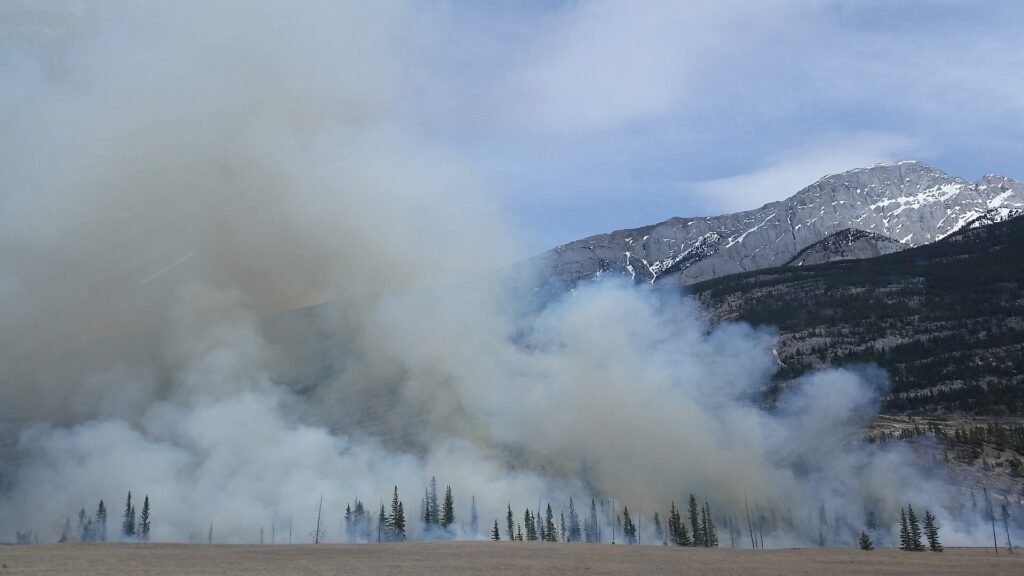Exposure to wildfire smoke has been linked to increased visits to emergency departments for mental health conditions, according to a recent study conducted by researchers at Harvard T.H. Chan School of Public Health.
The study, published in JAMA Network Open, focused on the short-term impact of wildfire-specific fine particulate air pollution (PM2.5) on mental health outcomes. While previous research has suggested a connection between PM2.5 and mental health, this study specifically examined the effects of wildfire-specific PM2.5, offering more precise insights into its impacts on mental health.
Analyzing data from California during the state’s most severe wildfire season in 2020, the researchers found that exposure to wildfire-specific PM2.5 was associated with a higher number of emergency department visits for mental health conditions, including depression, anxiety, and mood-affective disorders. The effects of exposure to wildfire smoke were observed for up to seven days post-exposure.
Interestingly, the study also revealed disparities in the impact of wildfire smoke exposure based on demographic factors. Women, children, young adults, Black and Hispanic individuals, and Medicaid enrollees showed the highest risk of mental health emergency department visits due to exposure to wildfire-specific PM2.5. These findings suggest that existing health inequities may be exacerbated by wildfire smoke exposure.
Lead author YounSoo Jung, a research associate in the Department of Environmental Health, emphasized the importance of ensuring access to mental health care during wildfire seasons, especially for vulnerable groups. As wildfires become more frequent and severe due to climate change, it is crucial to address the mental health effects of wildfire smoke exposure and provide support to those most affected.
The study highlights the need for proactive measures to protect public health during wildfire events and mitigate the mental health impacts of wildfire smoke. By understanding the specific effects of wildfire-specific PM2.5 on mental health, healthcare providers and policymakers can better prepare for and respond to the growing challenges posed by wildfires in the context of climate change.
For more information on the study, you can refer to the publication in JAMA Network Open titled “PM2.5 from 2020 California Wildfires and Mental Health-Related Emergency Department Visits.” The research was conducted by YounSoo Jung and colleagues from Harvard T.H. Chan School of Public Health.
This information is provided by Harvard T.H. Chan School of Public Health. You can access more details about their research and initiatives on their official website.


